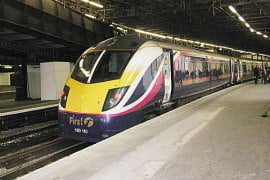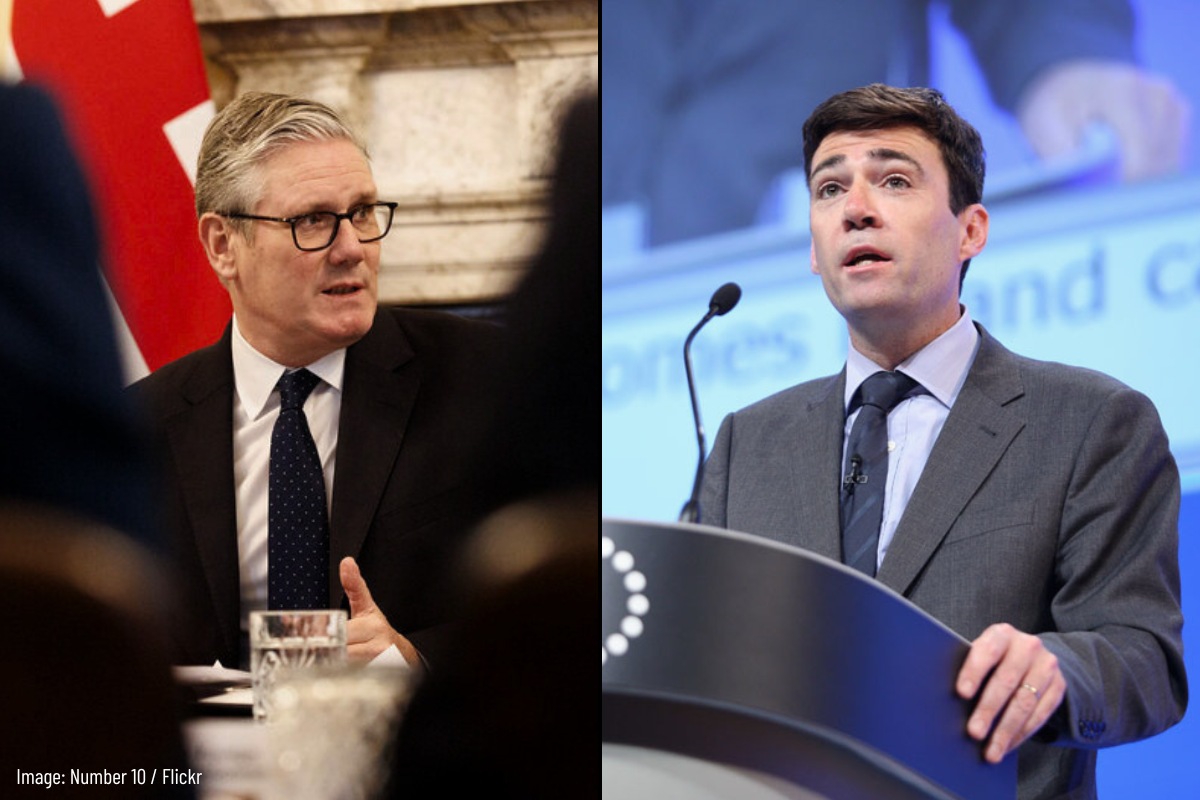This year marks the twentieth anniversary of the privatisation of the British railway system. The old state-owned network, British Rail, was broken up and sold off to private companies by the Tories, with the promise that the introduction of market forces would bring better service, quicker trains, and lower costs. Chris Burrows asks: what has happened to the UK rail service?
This year marks the twentieth anniversary of the privatisation of the British railway system. The old state-owned network, British Rail, was broken up and sold off to private companies by John Major’s Conservative government, with the promise that the introduction of market forces would bring better service, quicker trains, and lower costs. “I see no reason why fares should increase faster under the new system than they do under the present nationalised industry,” the Tory Transport Secretary John MacGregor said in 1993. “In many cases, they will be more flexible and will be reduced.”
Unfortunately, anyone who has travelled by train recently probably won’t be so enthustiastic about the effects of privatisation! Even after taking inflation into account, peak-time ticket prices have soared. A single from London to Manchester has gone up by 208%, London to Glasgow has risen by 160%, and London to Exeter by 205%. The RMT trade union puts the average increase in ticket prices at 22% in real terms. However, the cost of a season ticket has on average only increased only slightly above the rate of inflation. The reason for this is simple – there are much stricter government controls on season ticket prices compared with peak-time fares. So much for the consumer benefits of privatisation!
However the rising cost of use is not the only consequence of privatisation. It has also made buying a train ticket unnecessarily complicated, with 35% of train users and 64% of non-users left baffled by the ticketing system. Britain has a lower proportion of electrified and high speed lines compared to other similar EU countries – but the highest fares in Europe. And the burden on the taxpayer is also massive – the cost of running the railways has more than doubled since privatisation. It is now estimated that privatisation costs an extra £1.2bn a year compared to public ownership.
The disaster of privatisation was illustrated in October last year by the West Coast bidding fiasco. After over a year of planning the whole process fell through, costing the government over £40 million in compensation payments. Although the government and media were quick to blame the incident on a handful of civil servents, in reality the crisis has brought to the fore what the general public has known for years – that the privatisation of the railways has been a disaster.
The West Coast Main Line service is run, like most of Britain’s railway lines, on a franchise basis by private companies. Different companies place bids to be awarded a contract to run the service for a fifteen-year period. In this particular case, Virgin Rail has been running the line since the railways were privatised in the mid 1990s. The transport giant FirstGroup was awarded the contract after they provided the government with overoptimistic figures for growth much to the anger of Richard Branson, Virgin’s billionaire boss. Branson immediately branded the government “insane”, and rushed to take legal action. The decision to award the contract to FirstGroup was then reversed after “significant technical flaws” were found in the bidding process.
Whether Richard Branson’s allegations about the bidding process were true is not the real issue here, although it is probable that there were a few dodgy deals behind the scenes. In reality it is a battle between two rival companies to aquire an extremely profitable government contract. Branson has already made over £200 million out of his rail empire, and is keen not to lose what he sees as a license to print money. Similarly, FirstGroup is desperate to win the contract in order to extend its control over the UK transport network, and give a rival a bloody nose. At the moment the outcome is uncertain, although it looks like the line will continue to be run by Virgin.
Richard Branson and the other rail bosses are more than happy to make a healthy profit from their government contracts – but are much less keen on investing in the railways. Genuine private investment into the railways is almost non-existent, and is estimated as being as low as 1% of total funding. Far from increasing efficiency, privatisation has presided over the creation of vast new regulatory bodies, debt write-offs, contractors, sub-contractors and dividend payments. Meanwhile, the top five rail executives paid themselves an average of £1m each last year. Could there be a more blantant transfer of wealth from public to private hands? Bob Crow, the leader of the railway worker’s union, summed up the whole situation succinctly: “Richard Branson and his shareholders are laughing all the way to the bank. Not only have they made hundreds of millions from the rail privatisation lottery but they have now scooped the rollover as well.”
British railways are now the most expensive in Europe, with many workers paying 15% of their income on commuting. For many journeys in the UK it is cheaper to fly than take the train! The reason for this is very simple: the loyalty of a rail company is not to its passengers or workers, but to its shareholders. If a line is not profitable, it will be closed; if a ticket office loses money, it will be shut down.
A nationalised rail network would not only be cheaper – for government and commuters alike – but far more efficient. Rather than having a bewildering array of different companies, regulatory bodies and subcontractors, the railway network could be run under democratic worker’s control. As a suggestion, this could be through a committee composed of delegates from trade unions, rail workers, technical specialists, and passengers associations. This would cut out bureaucracy and allow a transport system based on public need rather than private profit.
However, the question of public ownership of the railways raises questions about the ownership of the economy as a whole. Who would provide funding for a nationalised transport system? Judging by the current levels of private investment, it is unlikely to be high street banks. Only a nationalised and democratic banking sector would be able to guarantee proper levels of funding. And where should rail infrastructure be built? Only if the transport network is part of a harmoniously planned economy can a properly integrated transport system be built. (No more prestige projects like the High Speed 2 rail link!). And how can we end overcrowding on public transport? Only the shortening of the working day will allow people to choose what times they travel to work, and so bring an end to the dreaded rush hour.
The crisis in the railways reflects the crisis of the capitalist system as a whole and it is increasingly clear that a socialist solution – based on public ownership, worker’s control, and democracy – is the only genuine answer.






